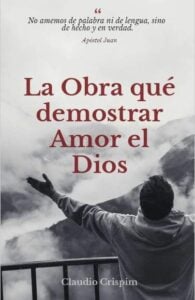“If He does not want that to happen, why put that tree in the middle of the garden – and not outside the walls of Paradise *” Veronika Decides to Die, Paulo Coelho. For Mari, character in the novel ‘Veronika Decides to Die’, the writer Paulo Coelho, expulsion from the Garden of Eden of the couple was arbitrary and without legal basis “… Just for breaking the arbitrary Law, without any legal grounds not eat fruit of good and evil “Ditto. However, the above question can be formulated without fear of any punishment, or Who is committing a sacrilege or blasphemy. Aim to know why God put the tree of good and evil knowledge in the midst of the garden without any barrier that prevented the man to Access it, however, is well advised to note that the act of asking a question, and depending on Who asks the question, can house the most varied in their intentions bulge.
Why did God put the tree of knowledge of good and evil in the midst of the garden?
This question should not be done only by atheists, skeptics, magicians, spiritualists, and other currents of secular thinkers, but it must be done mainly by Christians. I do not mean ‘Christians’ with fulcrum through religion, morality, or formality, but those Who actually believe in the doctrine of Christ.
The question can be formulated without fear of any punishment, or Who is committing a sacrilege or blasphemy. Aim to know why God put the tree of good and evil knowledge in the midst of the garden without any barrier that prevented the man to Access it.
But is it wise to note that the act of asking a question, and depending on who asks the question, can house the most varied in their intentions bulge.
To understand this peculiarity own questions, let us return to the event in Eden:
The ‘snake’ asked a question to the woman, “Has God indeed Said, ‘you shall not eat of every tree of the garden” (Gen. 3: 1). The ‘snake’ wanted to know, or to question the divine ordinance? What perspective motivated the questioner?
Notice what the cunning ‘snake’ could with the question put to her,
- He called Eve’s attention to the fruit of the knowledge of good and evil tree;
- emphasized the Idea of a ban exacerbated, misplaced and that never existed;
- Did the woman feel self-assured by demonstrating the ‘snake’ superior knowledge;
- Therefore, the woman did fail to take refuge in God’s Word, and;
- He got the opportunity to expose the lie that produced the mistake.
The question, ‘Why did God put the tree in the middle of the garden’ is relevant and must be made when you have the desire to know, however, depending on the context, or the time it is made, can be used to flatten. Please Note:
“If He does not want that to happen, why put that tree in the middle of the garden – and not outside the walls of Paradise *” Veronika Decides to Die, Paulo Coelho, São Paulo, Publisher Earth Brazil, 2006, Page 108. .
When faced with questions like this one is well advised to check what the motivation behind it:
- a) desire to know, or;
- b) urge to criticize, to flatten, etc.?
Another point to be considered refers to the emotional state of the questioner.
The question on screen should be made, however, one should not disown it only the emotional imbalance moments. Why question the divinity of reasons only when you are not well off, when you lose a relative, when it comes out of a frustrating relationship, when depressed, when in fatalities, catastrophes, etc.?
If the questioner wants to get to the truth can not be compromised emotionally.
It is known that one of the problems modern science is the tool, ie the analytical tool of certain scientific events. How to analyze an atom without the analysis tool interfere with the dynamics of the atom? If analyzed by a microscope, the light itself jutting into the atom will not interfere in what is watching, interfering with the measurement and diagnosis? By introducing certain dyes in cells to see it, do not interfere with the dynamics of their compounds?
They Will say an analysis which depends solely of logical relations, the person seeking an answer is committed emotionally? If the questions, the basis for any search of knowledge, already beset with biased elements arise?
It follows that, if a person is emotionally compromised, you will hear only what you want to hear, and see only what you want to see. Thus, we have a true statement of the popular saying: “The blind as those who will not see.”
Since the devil asked the question to the woman, “Has God indeed Said, ‘You shall not eat of every tree of the garden” (Gen. 3: 1), emphasizing a ban that effectively did not exist, many thinkers only hear and see in the ordinance God gave man a ban. Even accuse God to cause the man to disobedience, or that God invented the punishment.
But what God Said to man? Do atheists have read what God Said? Do the critics opened and effectively read the book containing the records of what God Said?
Notice what God Said, “Of every tree of the garden thou mayest freely eat…” (Gen 2:16). What God emphasized? God stressed that the man was free, and it could act at Will. Adam could freely eat of every tree of the garden, however, the ‘snake’ emphasized the woman only a ban.
It is surprising that in any charge against God cite his words as recorded in Genesis, especially, “Of every tree of the garden thou mayest freely eat…” (Gen 2:16). Usually label the fruit of the knowledge of good and evil tree only ‘forbidden fruit’. And the fruit has never been ‘banned’ because of all the trees man could eat ‘freely’.
Induction of ‘snake’ obscures the truth to those Who take delight in manifest that they like their hearts. Wrong to amalgamate the biased question of ‘snake’ divine ordinance, and interpret it only as prohibition. Well the preacher Said: “The fool has no delight in wisdom, but only to manifest what pleases your heart” (Proverbs 18: 2).
What is evident in the divine ordinance? God giving Adam the exercise of free Will!
God put the tree of good and evil knowledge in the midst of the garden, without any barrier that prevented man to eat of its fruit to give you freedom.
If the tree of knowledge of good and evil was not placed among the other trees of Eden, Adam was effectively free? There is freedom when there are no limits? How to design freedom without an established reference?
There are no limits to God? It is understood that God is free, but He can not lie. God can not go back on his word. He can not promise and fail to comply! Although God is God, submits to his Word! However, He is the ultimate expression of freedom!
Freedom is not in doing what is vetoed before is the ability to reject or not prohibited.
Without the tree and without divine warning there would be no exercise of freedom, and the man is linked to God even against their Will. The rule (freely) and the exception (but) go together to be feasible the exercise of freedom (Gen. 2:16 -17). All garden trees could be sampled freely, but, man should consider that if he ate of the tree of good and evil knowledge, would bear the consequences (separation from God).
Though created free, there would be no reason for such freedom if Adam did not have the real possibility to exercise it. What is freedom without the possibility of being enslaved? Choose the forbidden is not really freedom because it does not reside in prohibited before, the possibility of rejecting something feasible: servitude.
Just as communion with God (life) is antagonistic condition of sale of the glory of God (death), to be with God is freedom, and alienated from Him slavery to sin.
Only where the Spirit of God is, there is freedom, so only God man is free and lives (2 Corinthians 3:17).
Adam did not try the fruit to be free, because to try it, passed the condition of arrested, submitting to their own decision.
At some point Adam was pressured to make a decision?
Freedom is patent, clear, for Adam was not coerced into making any decisions. He was free, because there was not any kind of oppression that would force him to make a decision.
Adam did not know the consequences of their actions? He did not have the knowledge to make a decision? It would be a blessing ignorance?
The struggle for information, rejecting any political regime that violates the right to information is a Constant for humanity over the centuries. But why accuse disobedience induction of God for granting a right so dear to Adam when informed of the consequences of their actions?
Man is free only when you know the consequences of their actions. Man is free when you are allowed to make decisions. Man is free when you have the knowledge to make their own decisions.
The divine ordinance was in no way arbitrary, rather than any legal system that man has ever invented. The divine ordinance is the most sublime expression of the spirit of the Law: it aimed to preserve the most important assets of man – the life and freedom.
While not eat fruit from the tree, Adam would remain alive (united with God), because the result was clear: surely die (alienation from God). While refrain from the tree of knowledge of good and evil Adam would remain free, but after eating, make would be a prisoner of your own decision.
For Mari, character in the novel ‘Veronika Decides to Die’, the writer Paulo Coelho, expulsion from the Garden of Eden of the couple was arbitrary and without legal basis “… Just for breaking the arbitrary Law, without any legal grounds not eat fruit of good and evil “Ditto.
It is inconceivable that someone, and use as an example the arguments of Mari character, linked to a legal system that is drawn up so that ordinary people do not understand the requirements, and this regime sustains the principle that no one can claim ignorance of the law , question that there was arbitrariness in the ordinance of Eden.
There would be arbitrary if God legislate for their own benefit, but the ordinance given to Adam was intended solely to preserve what belonged to the man. Make someone criminally liable, even when unaware of the Law, is to legislate for the benefit of the law, not the subordinate of law.
There is nothing in that margin to accuse God of arbitrariness, but the accusers want to put the divine ordinance in suspension, even living under a legal system that navigates the lower principles of divine ordinance. While the divine ordinance aimed to preserve the two most precious things that was given to man, the legal systems of today are proposed to mediate conflicts of interest, being eminently punitive. For example: kill someone comes down to a sentence of imprisonment.
The accusation that God invented the punishment through the ordinance given to Adam is based on a simplistic logic without even investigate the facts described in the Bible “God (…). On the contrary, wrote the Law and found a way to convince someone to break it, Just to be able to invent Punishment “idem.
“And the Lord God commanded the man, saying, Of every tree of the garden thou mayest freely eat, but of the tree of good and evil knowledge, you shall not eat; for in the day you eat thereof, you shall surely die “(Genesis 2:16 -17).
What is the consequence of man’s decision to eat the fruit of the knowledge of good and evil? Death. The death from which God made reference was not the end of the vital functions of the body, because when referring to physical death of man He uses the term ‘return to dust’.
If there was only Adam and Eve in Eden, they would die for whom? The decision to eat the fruit would result in alienation, a barrier between God and men. Only the term “death” to describe the ‘new’ condition relevant to man after the fall.
When God warned: ‘you shall not eat’, was signaling that if man no longer wished to relate to and depend on the Creator (life), which avail herself of the knowledge of good and evil fruit. As the man was free, if not most wanted to live in the care dependency and knowledge of the Lord, could ‘be’ apart from Him (death).
After eating the fruit of knowledge of good and evil, man has become like God, knowing good and evil. The enmity barrier was erected (death, separation, alienation…), and the man went on to play by the knowledge acquired.
God no one oppresses (Job 37:23), and tempt anyone with evil (James 1:13), therefore, the fall of man did not come from the Creator. It was the man Who launched the presence of the Creator.
After eating the fruit and die (alienation), the man became a slave to be his own decision. Although to be like God, knowing good and evil, was alienated God, therefore, was asked to hold their own. When shared the glory of God, the man was not as God, knowing good and evil, but God came from all things. Of every tree of the garden that was planted by the Lord the man could eat freely, with the fall, man was in possession of the necessary knowledge and needed to keep the sweat of his Brow (Gen. 3:19).
The condition of Adam equates to the son Who manages his father’s emancipation: stand by themselves. When He was acquainted enough till and tend the garden of God, now, out of the garden, the land was put to produce thorns and thistles, so that man provesse their livelihood through the sweat of his Brow (Gen. 3:18). The work was not punishment, because the man worked since it was put in the garden.
The man became ‘independent’ after the fall, and was cast out of the Garden of Eden to initiate their toil plowing a land “difficult” that produce sweat according to the measure of man’s work (Gen. 3:23). Note that there is a big difference between ‘freedom’ (life) and ‘independence’ (death). When it is free, there is an established relationship between the parties, but when establishing independence, relations are cut off.
Before the fall man was free to decide whether or remained separated himself from the Creator. After the fall, became a slave of his own decision because it does not have the means to return to the Creator. Although many seek back to the Creator on their own, are doomed to failure.
Back to live is only possible through the Creator himself, pointing lovingly through his Word. As the man did not give credit (believed) the Word that was it for life, the only way the man back to life is to believe in the Word of the Incarnate Word – Christ, Who in Eden was related to ‘teofanicamente’ with Adam.
That is why Christ says: “He Who believes in Me, as the Scripture has said, streams of living water flow from within him” (John 7:38). Just believe the Scriptures! You do not need like Eve did, that instead of believing in the word of the express image of God, sought to strengthen its word “And the woman said to the serpent, Of the fruit of garden trees eat, but of the tree which is in the middle of the garden, God said, Ye shall not eat of it, neither shall ye touch it, lest ye die “(Gen. 3: 2 -3).
It was enough to believe the Word of the Lord Who told them that ‘surely die’ if would use the freedom they had, and eat of the tree of good and evil knowledge. Induced by the serpent, Eve upset the ordinance, which emphasized freedom, alert and careful, making it a ‘Law’ strictly prohibitive: “Ye shall not eat of it, neither shall ye touch it, lest ye die” (Gen. 3: 3).
Where there is only one ‘Law’ prohibitive in place of the ordinance that promotes freedom, the lust works in man, as to understand the freedom of the ordinance as strictly a commandment (Law), sin operates every lust. For example: Eva looked and saw that the tree was good for food, pleasing to the eye and desirable to make one wise (As she considered the ordinance as strictly being a commandment, sin through the commandment worked every lust), she resorted the fruit and ate.
Even if the ban (law) is not sin, man knows only lust when faced with the ban (law). Freedom ‘of every tree thou mayest freely eat’ sin was dead, the same as living without Law, because the Law (prohibition) has only rationale for the transgressors (1 Tim 1: 9), while the ordinance about the care free. Only prohibition ‘shall not eat of it’, sin think occasion, because it ends up working every lust.
While there was freedom man lived, but the ban ‘Eat not of it’, the lust led to the sin that brought death. Note that the commandment which was for life, became death. The command (ordinance) is holy, just and good, and the law (prohibition) santa, however, sin found occasion in the ordinance is killed the man. Sin found only occasion because, induced by the question of the serpent, Eve understood that the ordinance was confined strictly a prohibitive law, and through the commandment ‘thou shalt not eat’, sin deceived her and killed her.
Therefore, any reading the scriptures must understand that where the Spirit of the Lord is there is freedom, but the law alone worketh wrath: for sin will always find occasion in the law through lust.
The Law is only imposed on offenders (1 Tim 1: 9), and because of the transgressors (Gal 3:19). Both the Law, “eaten of the tree of which I commanded you not to eat” (Genesis 3:11), as the law of Moses were added because of transgression, because it operates the wrath of God, instead of care ordinance, which is justified for the righteous (1 Tim 1: 9).
To win the ‘snake’, Eva was enough to stick to the divine ordinance as Christ did when He Said, “It is written not by Bread alone does man live, but by every word that proceeds from the mouth of God” (Mt 4 : 4). There’s a difference between:
- What did God say, “Of every tree of the garden thou mayest freely eat, but of the tree of good and evil knowledge, you shall not eat; for in the Day you eat thereof, you shall surely die “(Genesis 2:16 -17);
- What Eve said, “From the fruit of the trees of the garden eat, but of the fruit of the tree which is in the midst of the garden, God said, Ye shall not eat of it, neither shall ye touch it, lest ye die” (Gen. 3: 2 -3) .
She forgot that all the trees could eat freely, which led to a mistaken conclusion: “You shall not eat of it, neither shall ye touch it…”.
While today’s legal system pursues the offender to impose the prescribed punishment, the ordinance of Eden only put man aware of the consequences of their actions. God did not pursue the man to punish him before the man suffered the consequences of its decision so ate the fruit.
While the snake made the knowledge of good and evil as attractive to humans eating the fruit, only God warned that if she ate the fruit, the man would establish a barrier between man and God (death, sin, alienation, slavery).
If God put a barrier between man and the tree of good and evil knowledge, establish a relationship of distrust between Creator and creature. Today skeptics accuse not God make a ‘vote’ of confidence in man. IF there was a barrier between man and the tree of knowledge of good and evil, would argue that at some point the man was free.
What do we see? What is the purpose of the questions that are being raised today? Seek information or want to flatten God?
There inducement to crime, disobedience, rebellion the following ordinance?
“The LORD God commanded the man, saying, Of every tree of the garden thou mayest freely eat, but of the tree of good and evil knowledge, you shall not eat, for in the day you eat thereof, you shall surely die” (Genesis 2:16 -17).
- God emphasizes complete freedom – “Of every tree of the garden thou mayest freely eat…”;
- Formal notice without inducing a decision: “… but of the tree of good and evil knowledge, thou shalt not eat…”;
- Alert motivation, knowledge needed for a decision: “… for in the day you eat thereof, you shall surely die”;
- Consequence of the decision: “… surely die”;
- Well ‘legal’ to be ‘tutored’: life and liberty.
If the bible recount that God left the tree without warning in the garden, and planted among other similar trees, and unwittingly man ate the fruit and died, accuse God of being silent, unfair and without love for his creatures.
Mari, after questioning the motivation of God put the tree of knowledge of good and evil in the midst of the garden, satirizes the narrative of the events after the fall of man and suggests that God was being sadistic:
“When the Law was broken, God – the Almighty Judge – even simulated a pursuit, as if they know all the possible hiding places. With the angels watching and amusing themselves with the prank (life for them also must be very upset, since Lucifer had left Heaven), He started walking. Mari thought like that Bible passage would make a beautiful scene in a thriller: the steps of God, looks scared that the couple exchanged among themselves, the legs suddenly stopped next to the cache “Ditto.
What Mari lawyer of the novel is, many do on a Day-to-day. Use their Professional knowledge, or their academic training to flatten what they do not understand.
The steps of God in Eden would a scene in a thriller? God has feet? God simulated a pursuit? God was sadistic?
Legal knowledge, historical and even scientific insufficient to assess the questions above. But if you have Bible knowledge, there is no obstacle in any Bible passage.
Generally the unwary viewing this stretch of the bible God in his glory and majesty, however, forget that in the Bible there are numerous theophany events. Theophany is a theological concept of nature which means the manifestation of God in any place, thing or person. The events counted most striking refers to the people of Abraham (Genesis 18: 1 -2) and Moses (Ex 3: 2 -6).
But the most important theophany occurred in Eden because Adam was created from dust from the ground and was related directly with the Express image of God – Christ. Who is the Express image of God? The writer to the Hebrews says, Christ, the Son of God (Heb 1: 2 -3). Jesus is the Express image of God, heir of all things, and through him the world was made, including the creation of Adam (Proverbs 30: 4).
When God Said, “Let us make man in our image, after our likeness” (Gen. 1:26), the express image of God was in charge of this task. As God created man in his own image? The express image of the invisible God, the eternal Word who was to embody, also responsible for all creation, created man as her figure (Gen. 1:27; Rom 5:14).
Recalling that the figure is not the very image of the things, we have only glorified Christ is the image and likeness of God, and only men Who reappear with him reach the eternal purpose established in Eden that is to man as the image of Christ, according to the vision of Christ, Who is the express image of God (Gen. 1:27).
God created man in the image of Christ as the One Who is like Him, that is, as his Son. And as the man was made in the image of the Son of God? The Son of God (image of God) created it. That is, so God created man the image of his Son, the Son created (Gen. 1:27).
That is why God formed (hands) the man of dust from the ground and breathed into his (breath) into the nostrils (mouth) (Gen. 2: 7). Moreover, planted a garden in Eden, and there he put the man, that is not the very image (expressed) before a figure of Christ, who is the express (exact) image of God.
The Lord Jesus used his hands to make a helper for Adam (Genesis 2:21), spoke to the couple (Gen. 3: 8), and made clothes for both (Gen. 3:21). Or Adam did not hide because He heard footsteps before because He heard the voice of the express image of God. They hid because I did not want God (theophany = Express image of God) saw them without costumes.
As Christ appeared to Abraham, also appeared and was related to Adam, Who was his figure “Your father Abraham rejoiced to see my Day: and He saw it and was glad” (John 8:56; Rom 5:14).
For those Who do not understand these events, it seems comical an all-powerful God look for a couple in the garden of Eden, but Adam was related to the express image of God, for he received from him the ordinance. Sometimes the Lord visited the couple in the garden, did so in theophany, not unfading glory.
The visitation of the Lord was not with a voice of thunder, as observed in other appearances, before Adam spoke to someone Who was his equal, like him. After the fall, God spoke again with Adam as He always had, and not with fire, lightning, thunder and thick darkness to terrify him.
Now when God called them to finish the Day, the couple decided to hide. Far from God simulated a pursuit, before the couple is that set out to hide. Finally, to request them again: “Where are you?” Adam said their follies and the shame of being naked.
The man has become like God, knowing good and evil (Gen. 3:22). Adam and Eve reached the ‘snake’ told them (Gen. 3: 5), however, made use of alienation from God.
It was not God who imposed to men thousands of rules and laws they have. The need for rules and laws is something very nature of man.
Even before sin, when asked by the serpent, Eve exacerbated the divine ordinance: “Ye shall not eat of it, neither shall ye touch it, lest ye die” (Gen. 3: 3). Men for yourself are laws, because they create laws, rules and revel in moral issues. Pune any that do not fit into its rules.
God created the naked man and gave them no law against nudity, but the man felt ashamed of himself, and decided on its own motion to cover themselves (Gen. 3: 7).
Why flatten God, if everything He created was good? “But, O man, Who art thou that to God? Shall the thing formed say to him that formed it, Why hast thou made me thus? “(Romans 9:20 -21)?.
The igniters only see the divine ordinance a means invented by God to punish the man, however, what legal system model is wait to punish man: the current legal systems, or the ordinance of Eden? Something is preventive in the legal system today?
Finally, we emphasize the need to ask questions, however absurd they may seem at first if we are interested in knowledge, however, when bombarded by a question, review the intent of the questioner.
After clarifying the intent of the questioner, if you are unsure, look for the answer in the Bible, as the apostle James was clear when he said: “Now if any of you lack wisdom, ask God, who gives to all liberally and without reproach and will be given “(James 1: 5).
 When we hear about God, we has seized with reverent attitudes, a feeling of devotion invades us, and emotion speaks loudly. Often, when we read about God’s love for humanity, willingness comes to the surface and we want to turn our feelings and emotions into service.
When we hear about God, we has seized with reverent attitudes, a feeling of devotion invades us, and emotion speaks loudly. Often, when we read about God’s love for humanity, willingness comes to the surface and we want to turn our feelings and emotions into service.




